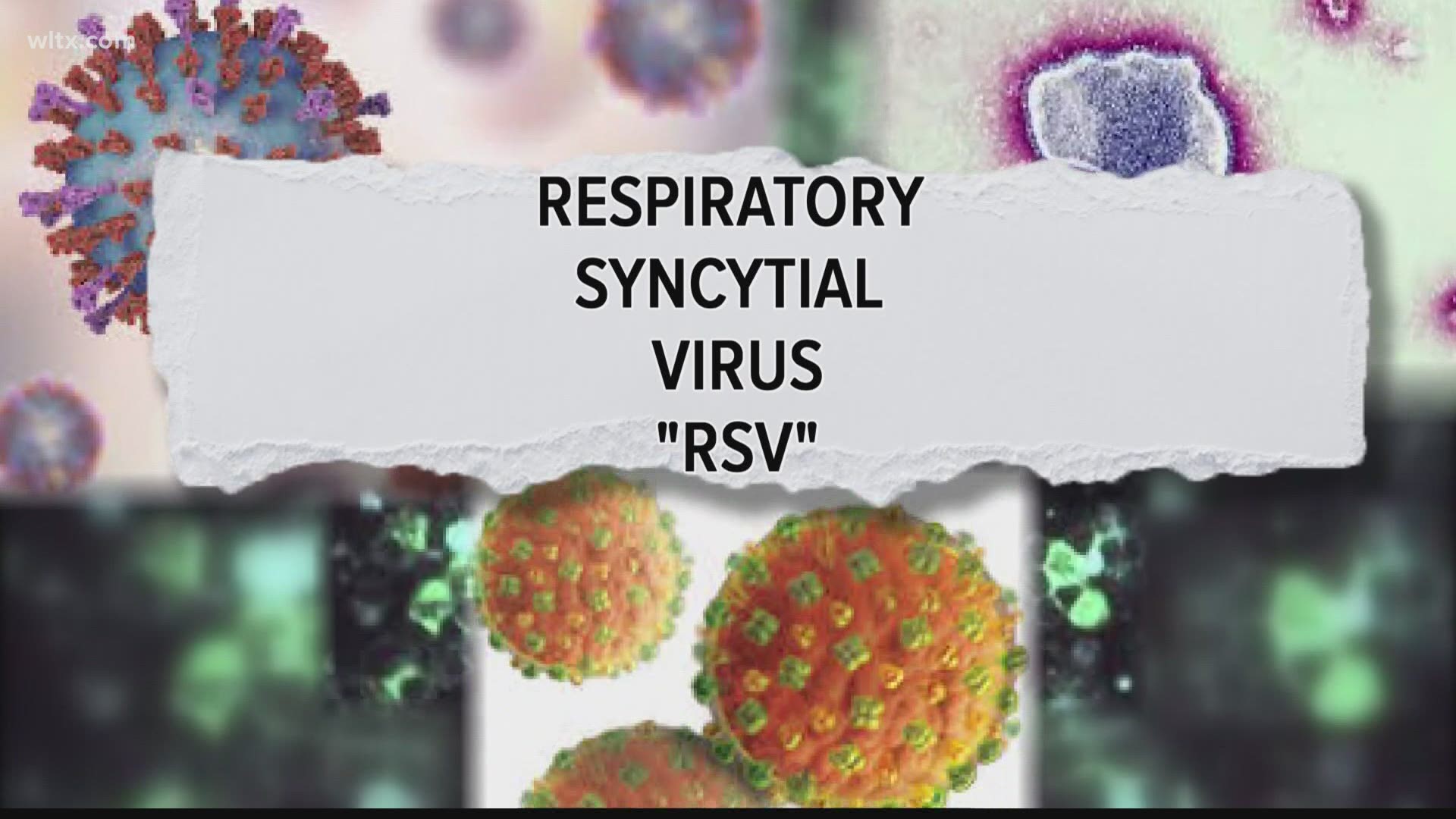COLUMBIA, S.C. — According the Centers for Disease Control and Prevention (CDC), and the SC Department of Health and Environmental Control (DHEC), health officials are seeing an increase in respiratory syncytial virus (RSV) cases across southern states, including South Carolina.
Prisma Health Pediatric Infectious Disease Physician Dr. Anna-Kathryn Burch said RSV is a mild virus that typically occurs in the winter and early-spring seasons. She said infants and elderly adults are more likely to have more severe cases.
"For those patients, typically you could get something called bronchial litas, which usually is pretty mild," Dr. Burch said. "It can cause coughing, maybe some fever, increased, what we call 'work of breathing,' where the infant has a harder time to breathe."
In some severe cases, Dr. Burch said patients could require oxygen.
RSV is usually spread by coughing and sneezing. Dr. Lauren Matthews, a Physician at Lexington Pediatric Practice said the spike in RSV cases are linked to COVID-19 restrictions loosening, such as no more mask mandates and lack of social distancing.
"So whenever we went on social distancing measures, everyone were being very diligent about wearing a mask, we kind of shut down all of those viruses," Dr. Matthews said. "And so now, a lot of these children have never been exposed to this virus so it's almost like a breeding ground. This virus is kind of picking up first in all these children that it's new to."
On June 10th, the CDC sent out a Health Advisory Notice to health officials, advising them to increase testing for RSV. Part of the notice stated:
"The Centers for Disease Control and Prevention (CDC) is issuing this health advisory to notify clinicians and caregivers about increased interseasonal respiratory syncytial virus (RSV) activity across parts of the Southern United States. Due to this increased activity, CDC encourages broader testing for RSV among patients presenting with acute respiratory illness who test negative for SARS-CoV-2, the virus that causes COVID-19. RSV can be associated with severe disease in young children and older adults. This health advisory also serves as a reminder to healthcare personnel, childcare providers, and staff of long-term care facilities to avoid reporting to work while acutely ill – even if they test negative for SARS-CoV-2."
According to the CDC, people with RSV are usually contagious for three to eight days. "However, some infants, and people with weakened immune systems, can continue to spread the virus even after they stop showing symptoms, for as long as 4 weeks."
Health officials said the best way to decrease your chances of getting RSV is to continue practicing good hand hygiene, covering your mouth when coughing and sneezing, and continue to practice social distancing.

